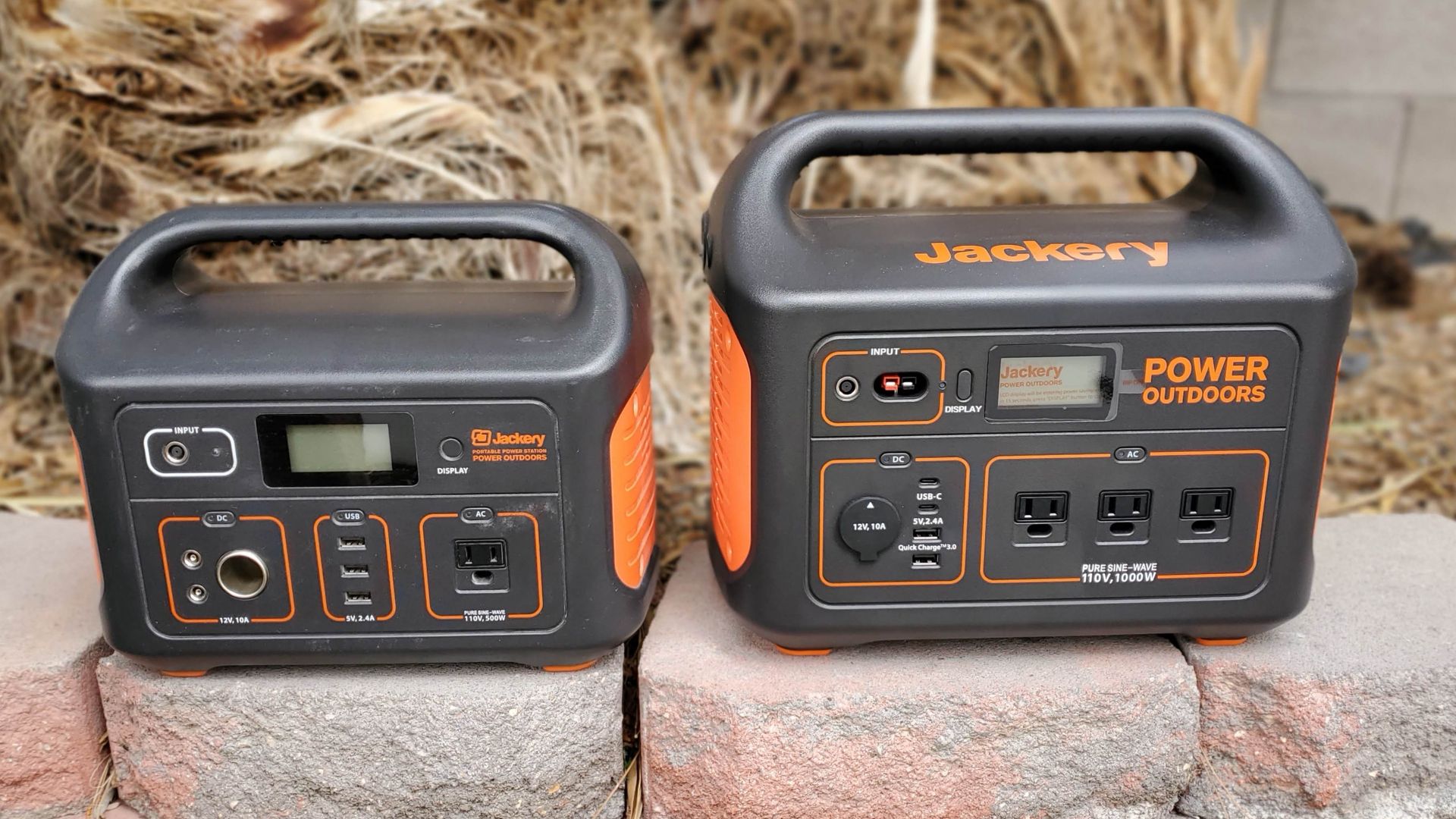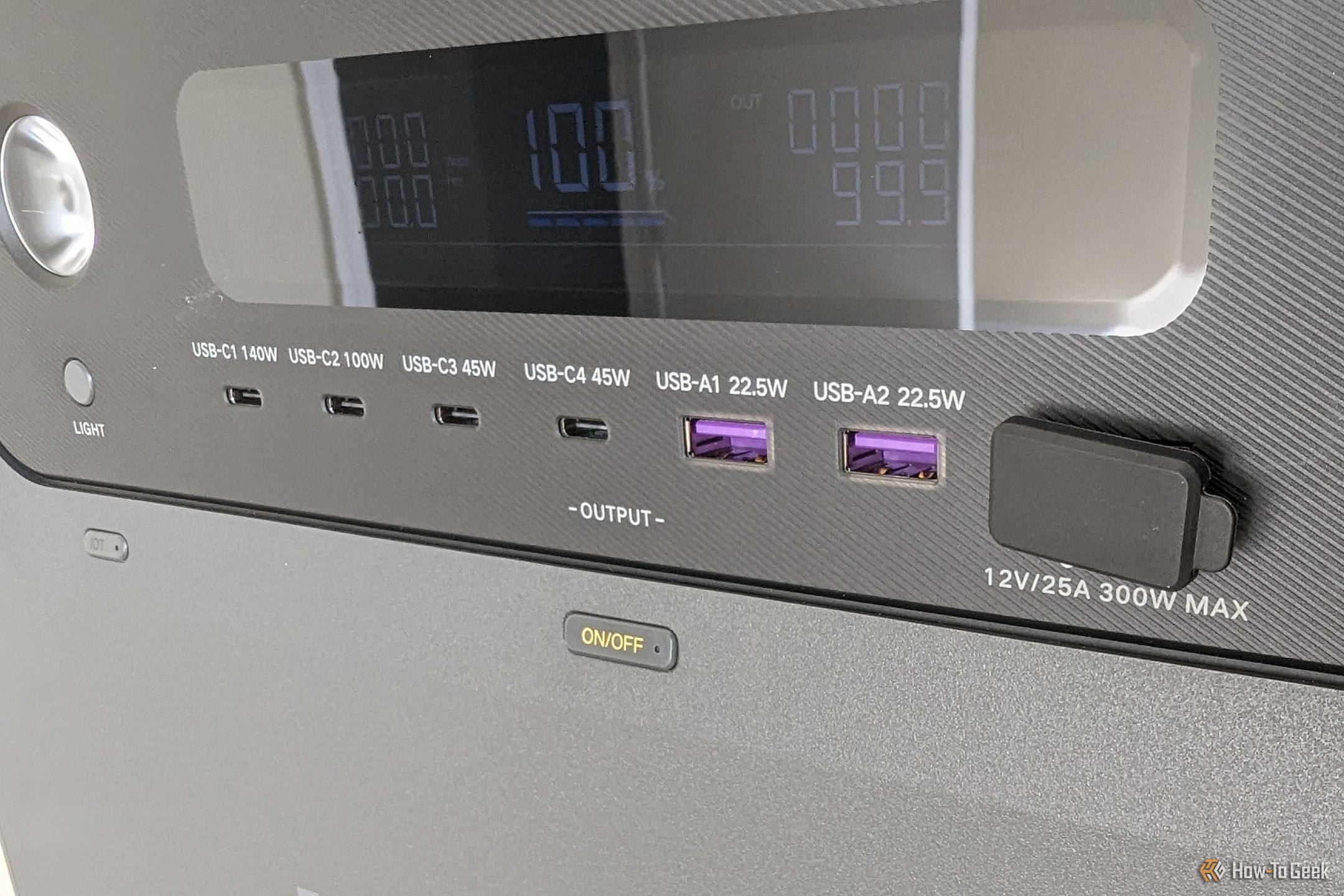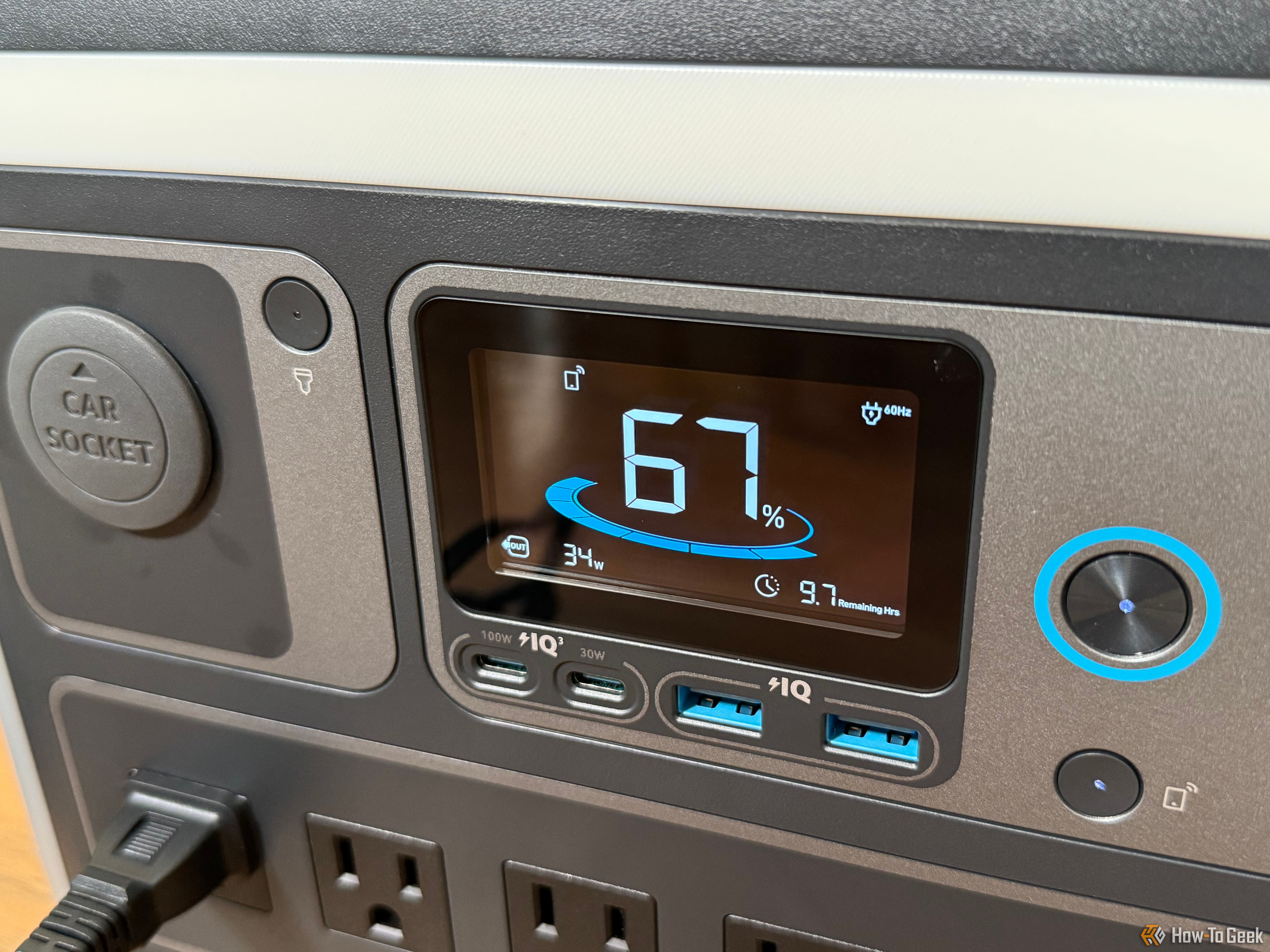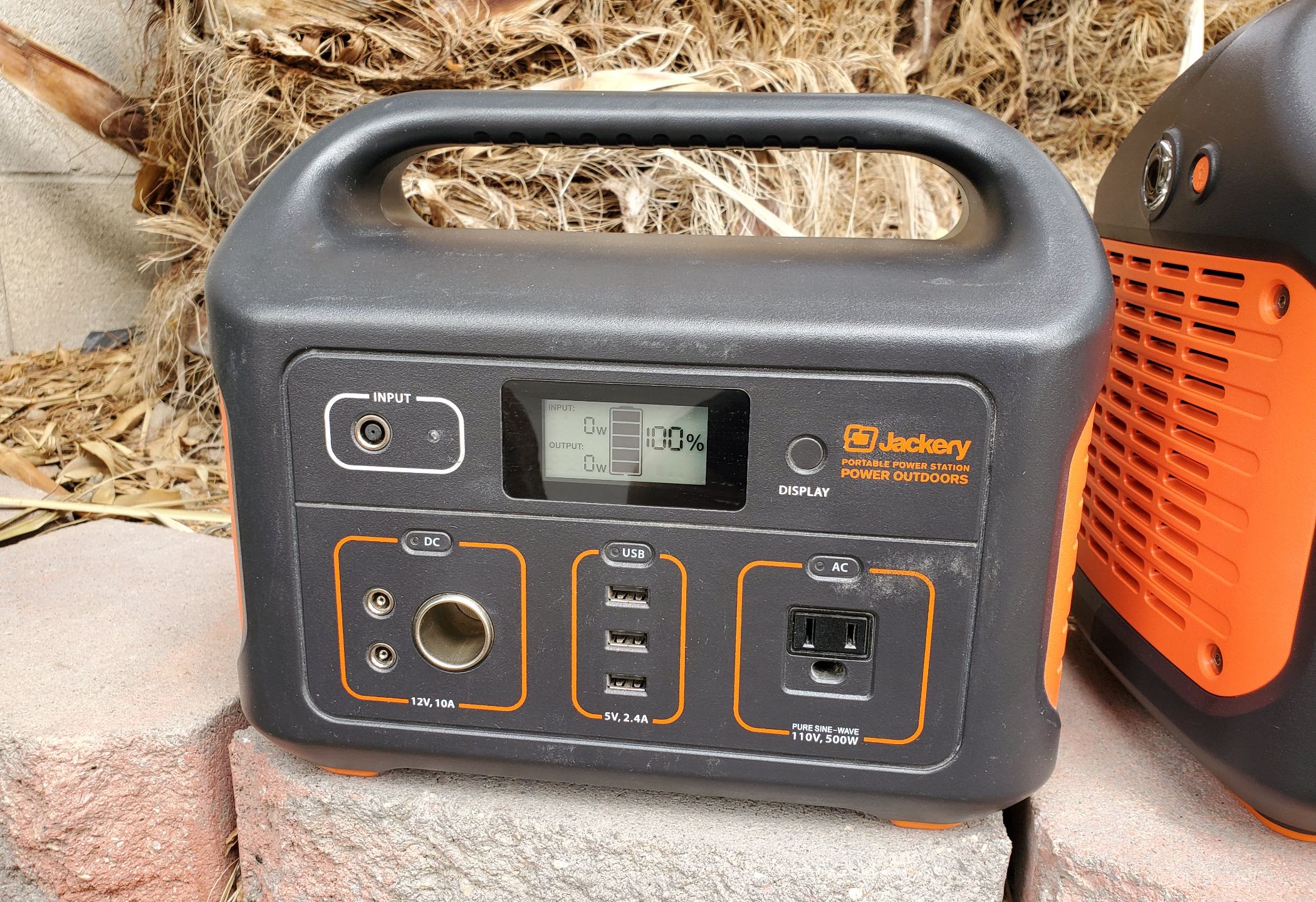Key Takeaways
- Power stations degrade over time, leading to reduced charge capacity and lifespan in older units.
- Newer models offer better technology, fast charging, higher power outputs, and more features.
- Upgrade if your unit is older, lacks USB-C ports, or uses outdated battery tech.
Portable power stations are a good investment because they can last for many years and are suitable for a wide variety of uses. But if you have one that’s a bit older, here are a few reasons it might be time to upgrade to a new model.
All battery cells will degrade over time, and eventually, your portable power station won’t charge to 100% or hold a charge as long as it initially did. Plus, newer models are substantially better across the board, from long-life LiFePo (LFP) battery tech, higher power ports, and faster charging, and some can even run RVs or charge EVs. Here’s how long your power station should last, what you’re missing out on, and what to expect from newer models.
How Long Should a Power Station Last?
While many variables determine how long a portable power station from brands like Anker, Jackery, EcoFlow, Bluetti, GoalZero, and many others will last, there are a few telltale signs.
Most models released more than 4-5 years ago use lithium-ion battery cells, which will experience degradation much faster than newer generation units with LiFePO battery technology. For example, Jackery suggests my old Explorer 500W will lose 20% capacity after roughly 600-800 recharge cycles. Similar to a phone that doesn’t hold a charge as well as it did two years ago, all batteries will experience a drop in performance over time.
I used to take the Jackery 500 camping to run a small mini fridge portable cooler. Eventually, it didn’t last through the weekend, so I upgraded to a bigger model with a newer LiFePO4 (or LFP) battery that’s good for 3,000 recharge cycles. Now I know it’ll run at peak performance for nearly four times longer, and that’s a big deal.
The lifespan of these little machines that deliver power on-the-go will depend on usage, battery type, battery maintenance, and quality, but they typically last around 5-10 years, if not longer. However, even if it’s still working great after 3-4 years, you might want to replace it anyway, as newer models have far more to offer than just longer-lasting battery packs.
Why It Might Be Time to Upgrade
How old is too old for a portable power station? Well, that depends on your wants, needs, usage, and budget. I still use that old Jackery 500, just not the way I did when I first bought it. There are a few main reasons to replace an old power station with a newer and better model. For me, that was to get one with drastically faster charging and more ports that deliver higher power outputs.
I gave my inlaws an old 1000W portable power station that came with a massive charging brick you plug into the wall. Unfortunately, it takes around 6-7 hours to recharge fully. Over the winter, they got an alert that a power outage might occur and plugged it in to ensure they had emergency backup power. By the time the power went out, it was only at 37%. That’s not ideal. And if you lose that massive charging brick, the entire device becomes a paperweight.
Newer models like my Anker SOLIX C1000 can go from 0 to 100% in under an hour, all using a single cable. That’s a massive difference compared to older variants and equally as important from a usage standpoint as the LFP battery that’ll last for over 3,000 uses. Fast charging makes it easy to top off before an emergency or in preparation for a weekend of camping off the grid.
Additionally, recent releases from Anker, Jackery, UGREEN, and others have more capabilities, 30 or 50A RV plugs, fast USB-C ports powerful enough to charge a laptop or tablet, and battery expansion options. Check our UGREEN PowerRoam review, and you’ll see it packs multiple USB-C ports, including one that’s capable of 140W output. Now that’s useful!
Older power stations might not have USB-C at all, forcing you to rely on slow USB-A cables. That’s certainly not ideal, mainly because everything from the latest MacBook Pro to action cameras, headphones, and most smartphones takes USB-C. Furthermore, newer power stations have more 2- and 3-prong AC ports, better screens, built-in Bluetooth or Wi-Fi for smartphone controls, work well with solar panel chargers, and much more.
If you have a device that came out 4-5 years ago, doesn’t use newer battery technology, lacks fast USB-C charging ports, or takes forever to recharge, you’ll love everything the newer models have to offer.
Your Old Power Station Is Still Worth Keeping
Don’t get me wrong. I’m not saying you should throw away or otherwise stop using an older power station. These gadgets have endless uses, from emergency power to charging gadgets and gear while camping, running a CPAP, to powering a projector for backyard movie nights.
However, if your main reason for getting a portable power station is to be better prepared for an emergency, you’ll want survival gear that’s fast, long-lasting, and readily available. If your unit takes 7 hours to charge and only has a few slow ports, it won’t be nearly as valuable as possible.
I still have my old, small, and lightweight Jackery Explorer 500, as it’s highly portable and great for specific tasks. But when inclement weather is approaching, or I’m getting ready for a longer outdoor adventure, I’ll reach for something like my Anker 767 power station on wheels.








